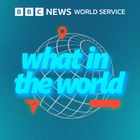
What in the World
Sep 19, 2023
Palm oil is found in everything from chocolate to shampoo, pizza, toothpaste and deodorant. It’s hugely popular with food and cosmetics companies because it’s odourless, tasteless and colourless, and does not alter the smell, taste or look of products. But palm oil — 85% of which is produced in Indonesia and Malaysia — is also a major driver of deforestation, which threatens the habitat of endangered species like the orangutan. That’s part of the reason scientists around the world have been trying to develop alternatives to palm oil. Esme Stallard, a BBC Climate and Science journalist, explains how some companies are trying to move away from palm oil and how it can be cultivated in a more sustainable way. Astudestra Ajengrastri, a BBC reporter in Jakarta, tells us what steps the Indonesian government has done to regulate the palm oil industry there. And conservation scientist Melvin Gumal, who has worked to protect orangutans since the 1980s, discusses how policies in the Malaysian state of Sarawak have helped protect orangutan habitats. (09:19) Also: Why has Canada warned its LGBTQ citizens about visiting the United States and how does that relate to bans on drag queen events? William from the What in the World team explains. We also hear from Dan Clay, who performs in drag as Carrie Dragshaw. He describes what it was like to lead a Drag Story Hour in Princeton, New Jersey — despite receiving a bomb threat just hours before. Email: whatintheworld@bbc.co.uk WhatsApp: +44 0330 12 33 22 6 Presenters: Hannah Gelbart Producers: William Lee Adams and Benita Barden Editors: Simon Peeks

